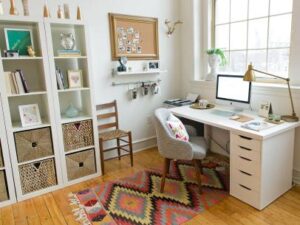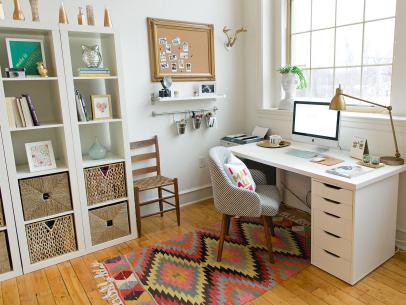 In today’s digital age, working from home has become increasingly common. Whether you’re a remote worker, freelancer, or entrepreneur, having an organized workspace is essential for productivity, efficiency, and maintaining a clutter-free environment. A quality desk organizer can help you streamline your home office setup, keep essential items within reach, and create a conducive environment for focused work. In this blog post, we’ll explore the key factors to consider when choosing a desk organizer for your home office to ensure functionality, style, and durability.
In today’s digital age, working from home has become increasingly common. Whether you’re a remote worker, freelancer, or entrepreneur, having an organized workspace is essential for productivity, efficiency, and maintaining a clutter-free environment. A quality desk organizer can help you streamline your home office setup, keep essential items within reach, and create a conducive environment for focused work. In this blog post, we’ll explore the key factors to consider when choosing a desk organizer for your home office to ensure functionality, style, and durability.
- Assess Your Needs:
- Before purchasing a desk organizer, take stock of the items you use regularly in your home office. Consider the types of supplies, stationery, gadgets, and documents you need to keep organized and accessible.
- Make a list of essential categories such as pens, notebooks, paper clips, charging cables, files, and sticky notes to determine the size and compartments required in your desk organizer.
- Determine Your Desk Space:
- Evaluate the available space on your desk or workspace to determine the appropriate size and configuration of the desk organizer.
- Consider the layout of your desk and the placement of other essential items such as monitors, keyboards, and lamps to ensure the organizer fits seamlessly into your workspace without cluttering the surface.
- Choose the Right Style and Design:
- Desk organizers come in a variety of styles, materials, and designs to complement different decor preferences and aesthetic preferences.
- Decide whether you prefer a minimalist, modern, rustic, or traditional look for your home office and choose a desk organizer that aligns with your personal style.
- Consider factors such as color, texture, and finish to ensure the organizer blends harmoniously with your existing furniture and decor.
- Prioritize Functionality:
- Look for desk organizers with versatile compartments, drawers, shelves, and slots to accommodate various office supplies and accessories.
- Opt for organizers with adjustable dividers or modular components that allow you to customize the layout according to your needs and preferences.
- Choose organizers with additional features such as built-in charging stations, cable management systems, and integrated pen holders for added convenience and functionality.
- Consider Durability and Quality:
- Invest in a desk organizer made from high-quality materials such as wood, metal, acrylic, or durable plastics that can withstand daily use and last for years.
- Check for sturdy construction, smooth finishes, and reinforced corners or joints to ensure the organizer is built to withstand the rigors of a busy home office environment.
- Read reviews from other customers and choose reputable brands known for their craftsmanship, durability, and attention to detail.
- Evaluate Storage Capacity:
- Determine the amount of storage space you need based on the volume of items you plan to store in the desk organizer.
- Consider the depth, width, and height of each compartment or drawer to ensure it can accommodate your office supplies and gadgets comfortably.
- Avoid overcrowding the organizer to maintain a clutter-free and organized workspace.
Conclusion: A quality desk organizer is an essential tool for creating an efficient, productive, and visually appealing home office space. By assessing your needs, evaluating your desk space, choosing the right style and design, prioritizing functionality, considering durability and quality, and evaluating storage capacity, you can select the perfect desk organizer that meets your requirements and enhances your workflow. Invest in a well-designed and durable organizer that helps you stay organized, focused, and inspired while working from home.

